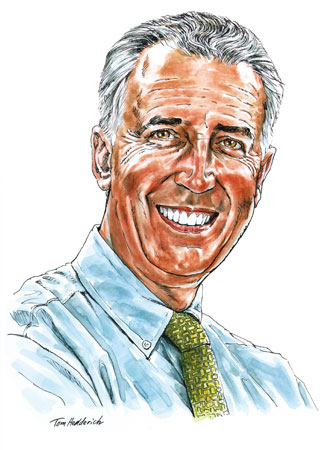Is it important or necessary to be erudite? Why be pressured to know something today when that info may be different tomorrow? After all,the globe is still turningat the same speed as when it was created, even though our world seems to be moving at the speed of light.
I suspect that inspectors don’t go to meat processing plants because even they don’t really want to know how the sausage is made. Similarly, do the rest of us really want to know how everything is made? And do we really care to learn every itsy bitsy piece of history?
This brings me to the difference between an expert and a generalist. “An expert is one who knows more and more about less and less until he knows absolutely everything about nothing.”
Nicholas Murray Butler, who served as president of Columbia University in the early 1900s, used the above expression in his 1927 “Annual Report” while criticizing the training that teachers received in those days. The following year, the Associated Press reported on a humorous remark made by Stanford University chemist Robert E. Swain, who explained that the definition of a generalist is: “One who knows a little about very much, and continues to know less and less about more and more until he/she knows nothing about everything.”
The point I’m trying to make is that, considering that all the information one needs can be obtained by going to cyberspace and having it conveniently displayed on a computer screen, why bother to me-morize facts and figures if we’re not aspiring Jeopardy! contestants?
Additionally, every fami-ly can depend on their own personal know-it-all, especially if a family has the mis-fortune of having a journalist in their midst.
The globe is still in motion — rotating or spinning at the same speed as when it was created, 1,600 kilometers per hour — but our world is moving at the speed of light. Every day there are new subjects to understand, new definitions to learn, new events to assimilate. And as if these weren’t enough, there are facts and alternative facts to learn and discern.
Nowadays it’s probably easier to be former president Donald Trump than anyone else because he could say: “I know and you don’t. I’m right and you’re not.” This line could easily have been lifted from the 1981 Italian movie The Marquis of Grillo: “I am who I am, and you are nobody.”
Imagine that the world went from one diet (such as: see food and then eat it) to today’s 144 different types of diets in the span of just 70 years. We barely learned about the subprime crisis before we were hit by new peril from stock-shorting and the fact that silver could bring banks to the brink. To feel out of this world, though, it is sufficient to read any description of our own trade conferences. Just when we were getting used to AVoD that became FAST with programmatic opportunities in 5G technology, we were hit by a multitude of production cycles: Traditional cycle, off-cycle, second cycle….
Now we’re all learning a new language that includes such terms as “virtual fa-tigue,” and Zoomspeak like “Bheja Vu” (a point made in previous meetings), “Invo-luntary Mutation” (talking with your mic on mute), “The Doggler Effect” (a dog barking continuously), “Advanced Pottery” (the abi-lity to complete a bowel movement without making others aware), “Juvenile Retention” (a child refusing to leave the room), “Perfeuphoria” (no longer needing to buy deodorant), and “Hair Supremacy” (euphoria if you are the only one in your Zoom meeting who has gotten a haircut).
Now, if you were a meat-processing inspector, wouldn’t you rather go to a plant and find out how the sausage is made than look for Bheja Vus in a Zoom meeting?
(By Dom Serafini)
Audio Version (a DV Works service)


Leave A Comment